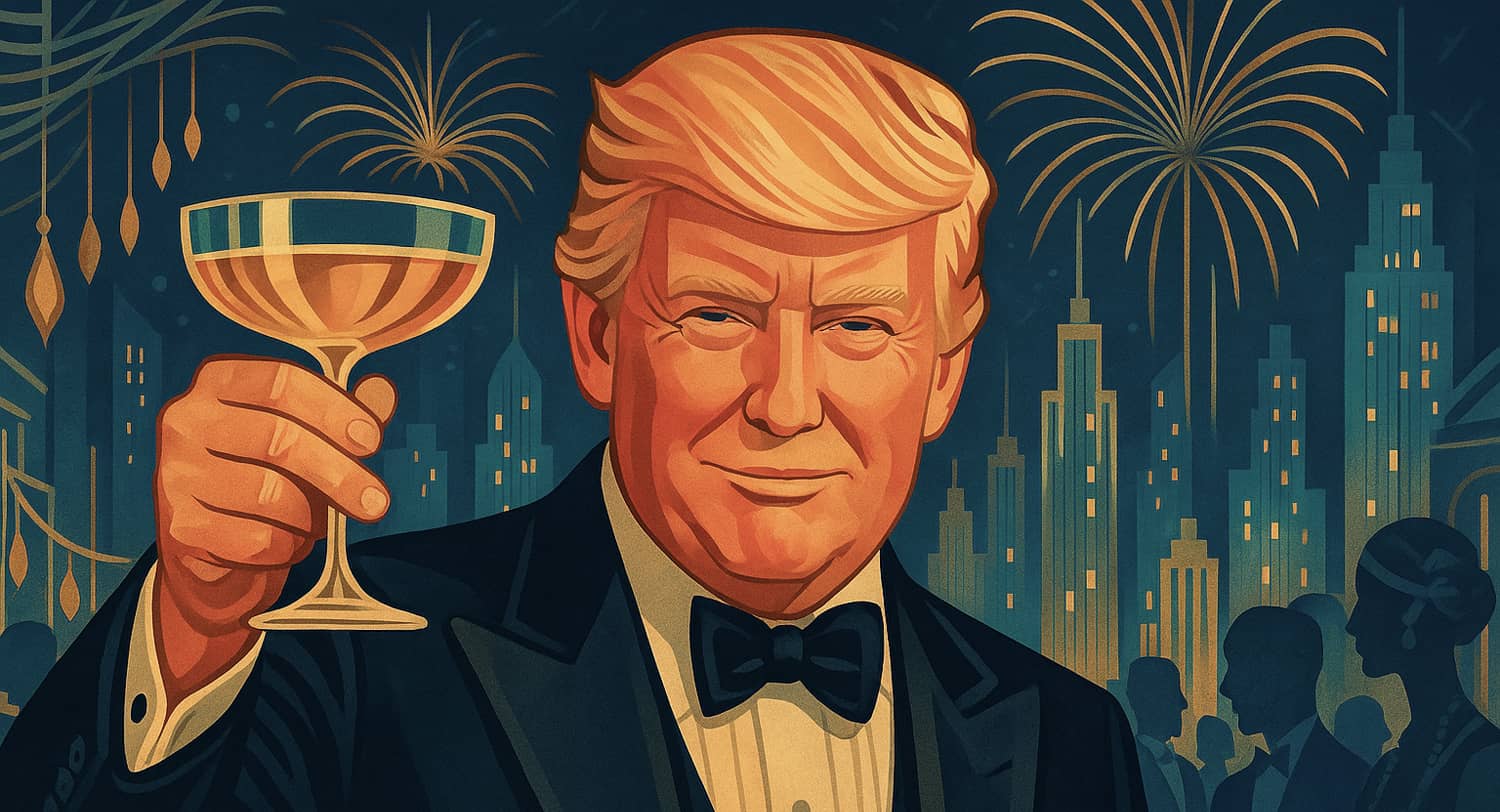F. Scott Fitzgerald’s The Great Gatsby is celebrating its 100th anniversary. On April 11, the Empire State building will light up in green to evoke the famous flickering green light that Jay Gatsby watches from his dock night after night—an appropriate homage since the book is set in Long Island and New York. Fitzgerald’s gravesite in Rockville, Maryland remains a place of pilgrimage. Inscribed on the small gravestone is the novel’s concluding line, “So we beat on, boats against the current, borne back ceaselessly into the past.”
No novel captures the febrility, the uncertainty and the sheer exuberance of America better than Fitzgerald’s work. Set in 1922, The Great Gatsby has lost none of its timeliness during the Trump era. Once again Americans are confronting questions that they first confronted after the end of the First World War.
Then as now widespread disillusionment with foreign adventures had set in. World War I had been sold by idealistic Wilsonian liberals as the war to end wars. It turned out to be nothing of the kind. Russia, which had experienced two successive revolutions in 1917, was a Bolshevik dictatorship rather than a democracy. The punitive 1919 Versailles Treaty meant that Germany was an unstable democracy. America turned inward.
During the 1920 presidential campaign, Republican candidate Warren G. Harding defeated his Democratic opponent James M. Cox with the platform of “America First” – opposition to immigration and support for high tariffs. Apprehensions about immigration had been further fomented in a best-selling book by Lothrop Stoddard The Rising Tide of Color Against White World Supremacy. Harding alluded to it in a major speech in Birmingham, Alabama about race relations after he became president. In 1921, Congress passed the Johnson Immigration Quota Act, which favored northern European countries over eastern and southern Europe, creating the first numerical limit on immigration in American history. Congress also approved and Harding signed into law the Emergency Tariff of 1921, which raised duties on sugar, wool, meat and corn.
These themes of cultural and economic anxiety were reflected in The Great Gatsby. In it, Tom Buchanan – former football star at Yale and an inheritor of old money – refers to a new book about the decline and fall of the West. “Civilization’s going to pieces,” he announces. “I’ve gotten to be a terrible pessimist about things. Have you read ‘The Rise of the Colored Empires’ by Goddard.” Goddard is, of course, Stoddard.
In another episode, Fitzgerald lingers upon the insouciance of Tom Buchanan and his wife Daisy. “They were careless people, Tom and Daisy – they smashed up things and creatures and then retreated back into their money or their vast carelessness or whatever it was that kept them together, and let other people clean up the mess they had made.” Tom Buchanan and Daisy have often been likened to Bill and Hillary Clinton or Donald and Melania Trump. As one critic observed, “Gatsby is about reaching, striving, even though we know, inevitably, we’ll fall short. No one has ever captured the yearning — not for who we are, but for who we want to be as Americans — in such a powerhouse amalgam of poetry, slang and oracular prose.”
Now that Donald Trump is promising a new golden age with his America First program, the question is whether he can fulfill those promises or whether he is willfully smashing up the global order, leaving it for his successors to deal with the mess.
The gyrations of the stock market, the imposition of sweeping tariffs on China and the vow to bring the European Union to heel are all meant to create new modes and orders that will benefit America. Trump wants to reinvent America, but he faces daunting obstacles, ranging from a soaring federal deficit to declining demand for Treasury bills. China alone currently holds almost $800 billion in American debt that it could dump if it were willing to shoulder the financial losses it would incur. Add in the welter of foreign policy difficulties he confronts—the Gaza and Ukrainian wars, not to mention negotiating a nuclear deal with Iran—and the global picture begins to look ever more daunting.
Trump’s ambition is to recapture America’s past glory. In this regard, Gatsby’s remark to his friend Nick Carraway, the narrator of the novel, could hardly be more apt: “Can’t repeat the past? Why, of course you can!” Gatsby eventually discovered that he couldn’t. Will Trump?

